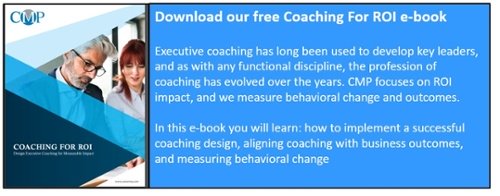Management, when practiced well, can be one the of most noblest of professions. These are the wise words from Clayton Christensen, the recently deceased Harvard Business School professor, and accomplished author.
There have been volumes written about how work is broken and everything that is wrong with modern management. It is easy to be cynical.
Sometimes we need that positive message – the motivational voice that speaks to our angels rather than playing to our demons. As Christensen so aptly states “No other occupation offers as many ways to help others learn and grow, take responsibility and be recognized for achievement, and contribute to the success of a team.’
Management is often derided. How many infographics, articles, and memes have we all seen on showing how managers are bad, and leaders are great. To say that you are a manager is to diminish somehow your effectiveness and positive impact on others.
Here is a compelling story that Christesen shares on the profound impact that a manager can have.
I tell the students about a vision of sorts I had while I was running the company I founded before becoming an academic. In my mind’s eye, I saw one of my managers leave for work one morning with a relatively strong level of self-esteem. Then I pictured her driving home to her family 10 hours later, feeling unappreciated, frustrated, underutilized, and demeaned. I imagined how profoundly her lowered self-esteem affected the way she interacted with her children. The vision in my mind then fast-forwarded to another day, when she drove home with greater self-esteem—feeling that she had learned a lot, been recognized for achieving valuable things, and played a significant role in the success of some important initiatives.
I then imagined how positively that affected her as a spouse and a parent. My conclusion:
Management is the most noble of professions if it’s practiced well. No other occupation offers as many ways to help others learn and grow, take responsibility and be recognized for achievement, and contribute to the success of a team. More and more MBA students come to school thinking that a career in business means buying, selling, and investing in companies. That’s unfortunate. Doing deals doesn’t yield the deep rewards that come from building up people.
When I reflect back on my career, I can honestly say that I did not always have the most positive impact on the lives of the people who reported to me. I was not a tyrant all the time, but I did let anger (lack of emotional intelligence), insecurity (micro-managing), and insensitivity (lack of empathy) negatively impact those around me
While I had many inspired moments where I built up the people around me, I cannot help but think back to the times where I did not.
I remember many years ago, I was a Brand Manager working on a tight new product introduction timeline. Everything had to fall into place for us to meet our launch date. Late in the launch cycle, I got the word that purchasing had mistakenly missed some product component order dates. We were not going to launch on time.
Angered, I indignantly marched down to the Purchasing Manager’s office and began to berate him about the poor job that he had done, about his lack of qualifications, and just about every other negative thing that came to mind. I then found myself in mid-rant, looking at the pictures on his credenza. The photos showed him with his children and wife – smiling – full of love for each other. To his family, the beleaguered Purchasing Manager was the center of their universe. Here I was tearing him down for no other reason than to make myself feel bigger by making someone smaller.
I immediately stopped my tirade, offered my apologies, and shifted gears to how we could fix our situation. In the following years, I was able to right the wrongs from that incident and build a friendship with the Purchasing Manager. The lesson I learned from this incident was lasting.
Managers who see everyone – employees, peers, vendors and their superiors – as people deserving of love, respect, and empathy will not only personally grow but will also positively impact their community. Frederick Herzberg, one of the most influential names in business management, influenced Christensen’s management philosophy. The major life lesson that Christensen learned was that the powerful motivator in our lives isn’t money; it’s the opportunity to learn, grow in responsibilities, contribute to others, and be recognized for achievements.
You do not need ping pong tables or bring your pet to work day to have a positive impact. Providing career growth, sincere recognition, and the opportunity to contribute will make a difference in how well you treat the lives around you.
About Clayton Christensen
Clayton Christensen was an American academic, business consultant, and religious leader who served as the Kim B. Clark Professor of Business Administration at the Harvard Business School. He was best known for his theory of "disruptive innovation," first introduced in his 1997 book The Innovator's Dilemma, which has been called the most influential business idea of the early 21st century. Source: Wikipedia
Christensen was also a co-founder of Rose Park Advisors, a venture capital firm, and Innosight, a management consulting and investment firm specializing in innovation.
Essential Reading: I highly recommend reading Clay Christensen’s “How Will You Measure Your Life?”




